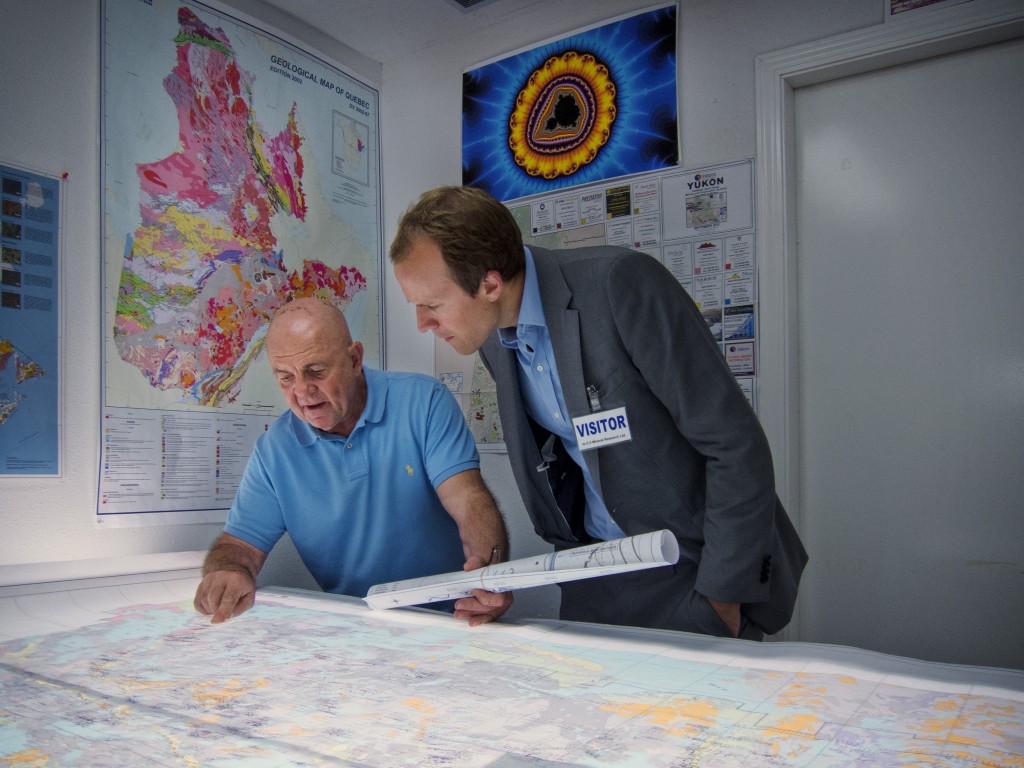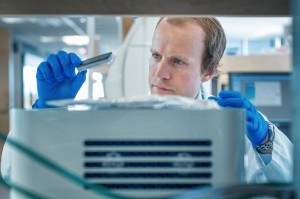$9.1 Million Gift Awarded For Alzheimer’s Research From Canadian Diamond Pioneer
Written by |

Charles Fipke, a Canadian geologist whose discoveries made his country one of the leading diamond producers in the world, donated $9.1 million to fund the research and treatment of Alzheimer’s disease currently being conducted by researchers at the University of British Columbia (UBC). “I want to do anything I can to help UBC’s researchers find a cure,” said Fipke.
According to the UBC website, the funding will be divided between a $3 million professorship dedicated to Alzheimer’s research, a $600,000 promise to buy cutting-edge equipment for the school’s lab at the Djavad Mowafaghian Centre for Brain Health (a partnership between the UBC Faculty of Medicine and Vancouver Coastal Health), and a $5.5 million commitment to purchase the most recent and desired brain imaging technology. Fipke’s gifts contribute to UBC’s start an evolution campaign, a fundraising and alumni engagement campaign that aims to raise $1.5 billion and recruit 50,000 alumni to be involved in university life by 2015.
Fipke was motivated to make this donation because of his longtime friend Bill Bennet who suffers from Alzheimer’s disease. Bill was the former premier of British Columbia, and while serving in the role, he built an established legacy of initiatives, events, and infrastructures. Bill’s son expressed the Bennett family’s gratitude for the funding at a ceremony today in honor of Fipke’s philanthropy to UBC: “our family is incredibly grateful to Chuck Fipke for this generous donation to Alzheimer’s research and we are very moved by his reasons for doing it.” He reminded about the urgency to find a cure for the disease and added: “they say with Alzheimer’s patients you say goodbye twice, the first of those being the most difficult because you’re saying goodbye to the person you knew and loved while they are still alive.”
With this donation, UBC is now at the global forefront of Alzheimer’s research, said UBC President Dr. Arvind Gupta. “Investing in the most creative, dedicated and determined scientists, and putting the most sophisticated technology at their fingertips is the surest means to making breakthroughs against this disease.”
Dr. Haakon Nygaard has joined the Faculty of Medicine from the Yale School of Medicine, and he is now the new Professor in Alzheimer’s Research funded by Charles Fipke. He will be conducting Alzheimer’s research at the Djavad Mowafaghian Centre for Brain Health. With new PET-MRI technology that combines positron emission tomography and magnetic resonance imaging, also funded by Fipke, Dr. Nygaard and his team will be able to conduct studies that wouldn’t be possible otherwise with two separate machines.
Dr. Nygaard, from Norway, earned his medical degree in Nebraska and spent the last 10 years at the Yale School of Medicine in Connecticut (as a neurology, a PhD student, and finally as a faculty member). He was the founding Co-Director of Yale’s Memory Disorders Clinic, and he became interested in Alzheimer’s disease because he liked working with older people, he said.
At UBC, he was a co-leading researcher in a $11 million project concerning whether saracatinib, a drug developed for cancer, can control the progression of Alzheimer’s disease. The first phase showed that the drug is safe, and researchers now aim to show that the drug can contain an Alzheimer’s-specific decline by scanning the metabolic activity in certain parts of the brain using PET (which allows the study of brain chemistry through radioactive tracers). He has mapped out other projects at UBC as well, such as collecting DNA samples from people over 100 years old who are cognitively healthy and looking for shared genetic characteristics, and the study of anti-convulsant drugs as a potential strategy to delay or reverse Alzheimer’s disease.
About Charles Fipke
Fipke is a Canadian geologist, entrepreneur and prospector. He earned his B.Sc. in Geology from UBC back in 1973 ,and he traveled the world for several mining companies before he started his own separation laboratory in Kelowna (where he is from). He became an expert in “indicator minerals” that signal the existence of diamonds. He spent weeks near the Arctic Circle and he found, later in 1991, high concentrations of diamonds at Lac des Gras. He partnered the first diamond mine in North America, boosting the Canadian diamond industry. The Charles Fipke Centre for Innovative Research on the Okanagan campus honors his first gift of $6 million to the UBC, in 2006; he already gave or pledged to the UBC more than $17 million.







